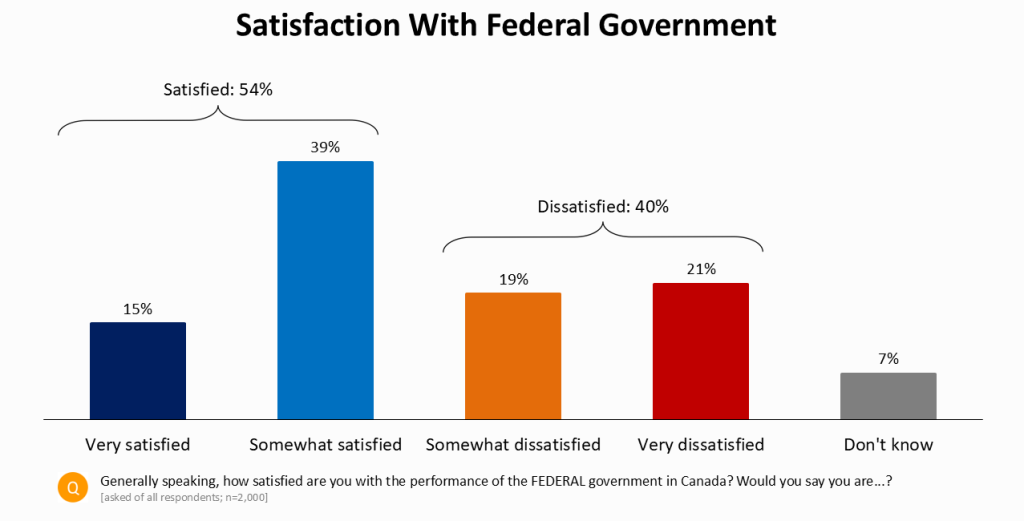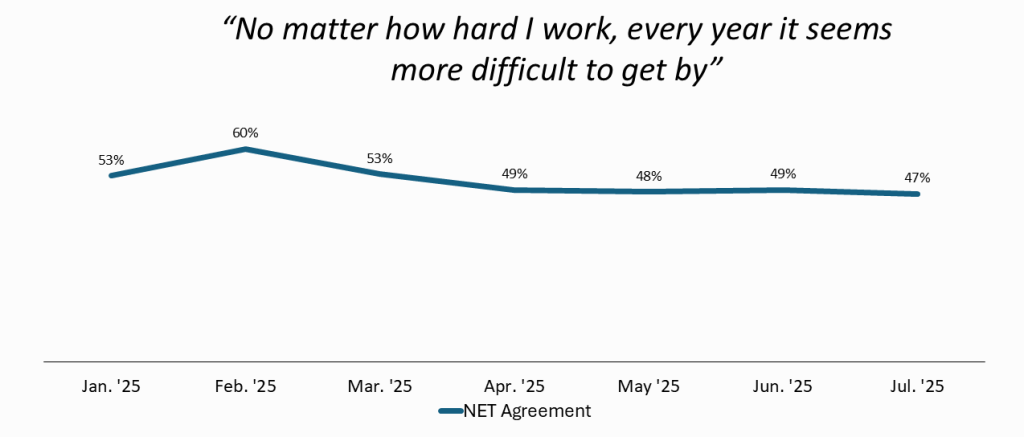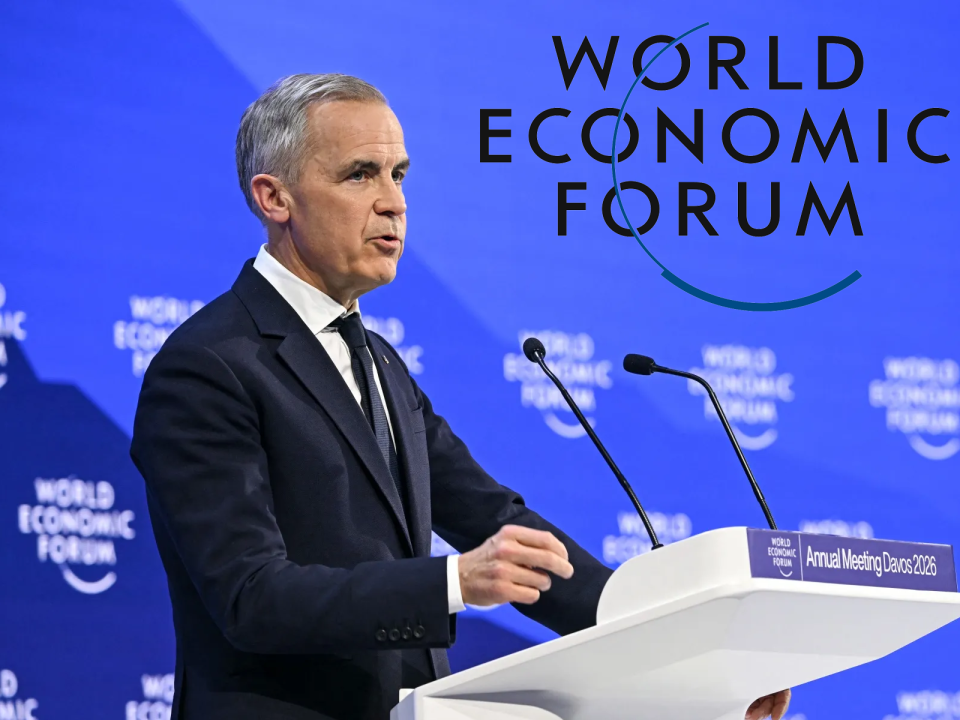
A majority of Canadians are satisfied with the performance of the federal government, but economic concerns remain pressing, according to INNOVATIVE’s tracking.
These results come from an online poll conducted between July 4th and July 28th, 2025, of 3,732 Canadian citizens, 18 years or older. This survey was sponsored by INNOVATIVE Research Group Inc. and weighted to n=3,000 based on age, gender, region, education, and self-reported past federal vote to ensure the overall sample reflects the population according to Census data.
Federal Government approval continues its upward trend, with 54% now satisfied. This is up 13 points since March (before the election). Despite partisan divisions, the government performs well across regions and age groups, though best among Liberal voters and older Canadians.

This strong showing is against a backdrop of economic uncertainty, with 62% saying that it is more difficult to get by, 33% identifying as “strugglers”, and Canada-U.S. tariff tensions. Perhaps more worryingly for the government, net agreement with the statement “No matter how hard I work, every year it seems more difficult to get by” drops marginally to 47%. Both numbers point to the underlying cost of living and quality of life tensions that drive the decline of the Trudeau government and the polling rise of the Poilievre Conservatives in recent years remaining unabated.

This also contrasts with lower approval on Trump-related issues, suggesting that Canadians are differentiating between broader attitudes toward the federal government and specific Canada-U.S. issues. Approval of the Federal government’s handling of Trump-related issues falls to 39%. Net favourability has decreased by 19 points since June, returning to February levels (pre-Carney) at 12 points. Among those who disapprove of the federal government’s handling of Trump-related issues, the most common critiques are a) seeing Carney’s government as weak, and b) wanting a firmer stance on trade and tariff disputes.
Carney continues to maintain a strong lead as preferred PM, with 50% holding a favourable view of Carney (net score of +20) compared to 37% for Poilievre (net -6). On the “Best Prime Minister” question, Carney leads Poilievre 40% to 29% nationally and holds an even larger lead in Quebec (+26 points). However, “read, seen, heard” responses show that Carney’s image is being defined disproportionately by the tariff war and the Canada-U.S. trade-related issues.
In summary we continue to see strong topline support for Carney as Prime Minister in particular, and the federal government in general. We are beginning to see the end of the honeymoon period, however, with continued strong levels of economic concern and fading approval on US-Canada relations both likely to test the patience of Canadians. When Parliament sits again next month, Carney and his government will be on the spot to maintain their broad support in the face of challenging policy files and Poilievre’s return to headline the Parliamentary opposition.
Click here to read the full report!
And sign up below for updates on this topic from INNOVATIVE.


































